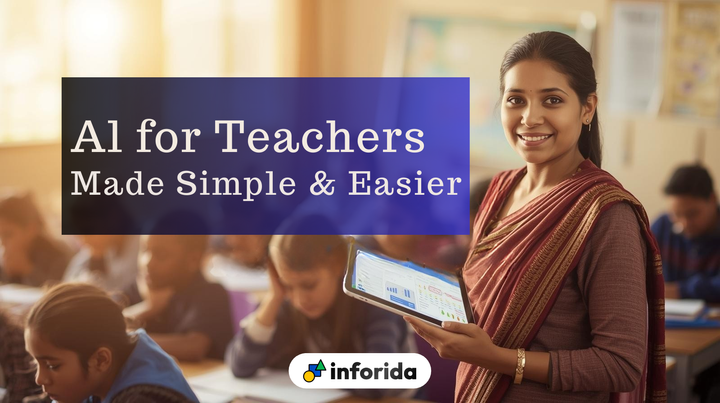Inforida vs. Traditional School Management: The Pros and Cons

In today's digital age, schools have to keep up with the times and find ways to innovate their processes. Traditional school management systems have been around for decades, but are they still the best way to manage a school's operations? In this blog, we will discuss the pros and cons of Inforida versus traditional school management.
Pros of Inforida
- Cloud-based Technology Inforida is a cloud-based solution that allows users to access information from anywhere at any time. This feature provides an added level of flexibility that traditional school management software cannot match.
- Real-time Reporting Inforida allows real-time reporting of student performance and attendance. This feature provides teachers and administrators with instant access to important information that can help them to identify problems and develop solutions quickly.
- Time-Saving Inforida automates many tasks such as grading, attendance, and report card generation. This feature can help to reduce the workload of teachers and administrators, which can result in a more productive and efficient school environment.
- Enhanced Security Inforida provides enhanced security through multi-level authentication, firewalls, and other security measures. This feature ensures that sensitive data such as student records are kept safe from cyber threats.
- Customizable Inforida is highly customizable and can be tailored to the specific needs of a school. This feature allows schools to design a system that is ideal for their unique requirements.
Cons of Traditional School Management
- Time-consuming: Traditional school management methods can be time-consuming, with tasks such as attendance tracking and grading requiring a significant amount of manual effort.
- Limited mobility: Traditional school management methods are typically limited to the school premises. This can be a disadvantage for teachers and administrators who need to work remotely.
- Limited data analysis: Traditional school management methods do not offer the same level of data analysis as Inforida. This can make it difficult for teachers and administrators to identify patterns and trends in student performance.
- Inefficient record keeping: Traditional school management relies heavily on paper-based record keeping, which can be time-consuming and prone to errors. This can lead to issues with data accuracy and accessibility.
- Limited communication channels: Traditional school management often relies on in-person meetings and paper-based communication methods. This can make it difficult for parents, teachers, and administrators to communicate effectively, especially in situations where face-to-face meetings are not possible.
- Limited access to student data: Traditional school management often relies on manual record keeping, which can make it difficult for administrators to access and analyze student data in real-time. This can hinder their ability to identify trends and make data-driven decisions.
- Limited flexibility: Traditional school management systems can be inflexible, making it difficult to adapt to changing needs and circumstances. This can lead to inefficient processes and missed opportunities.
- Security risks: Traditional school management often involves paper-based record keeping and manual processes, which can be prone to security risks. This can include issues such as data breaches, theft, and unauthorized access to sensitive information.
In conclusion, both Inforida and traditional school management methods have their pros and cons. Ultimately, the choice depends on the specific needs and goals of each school. While Inforida offers greater efficiency and mobility, traditional school management methods may be more accessible and familiar. The key is to find a solution that best meets the needs of your school and helps improve student performance.
Ready to take your school to the future : https://inforida.com/




